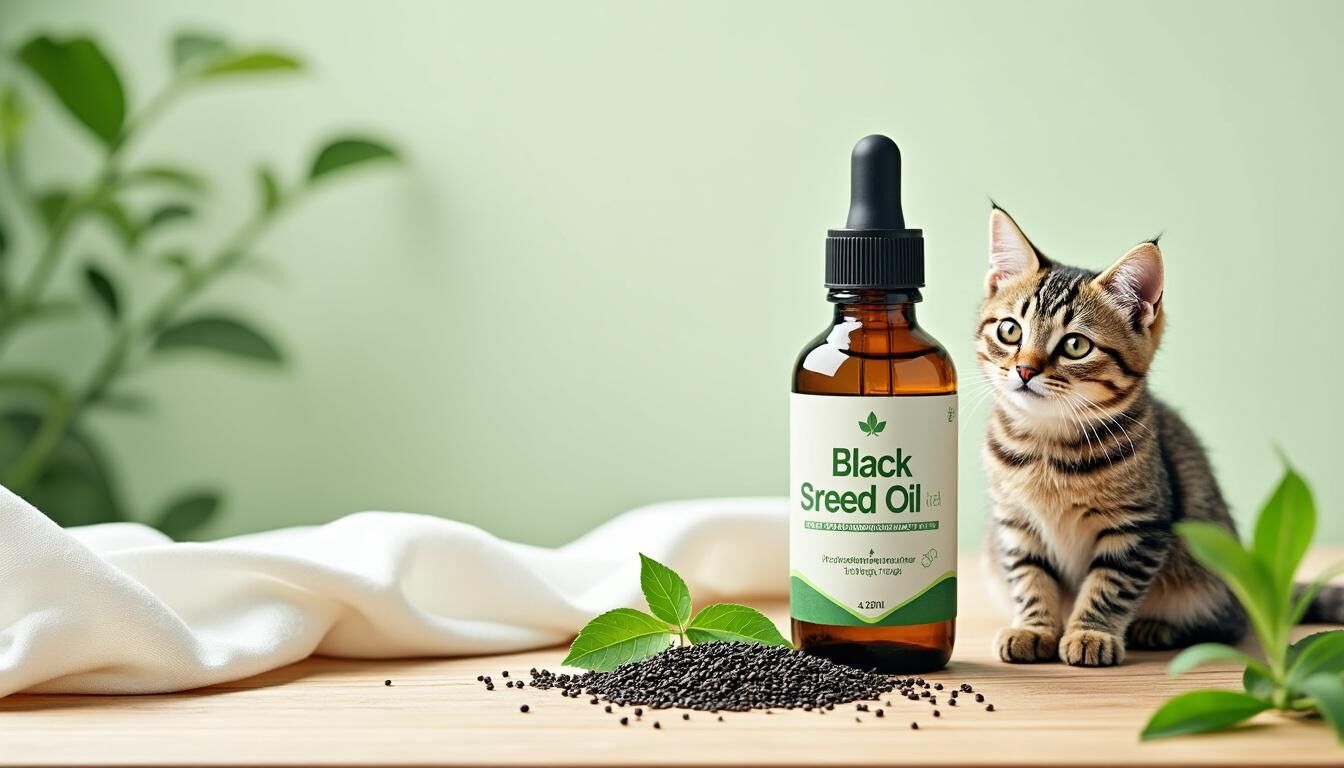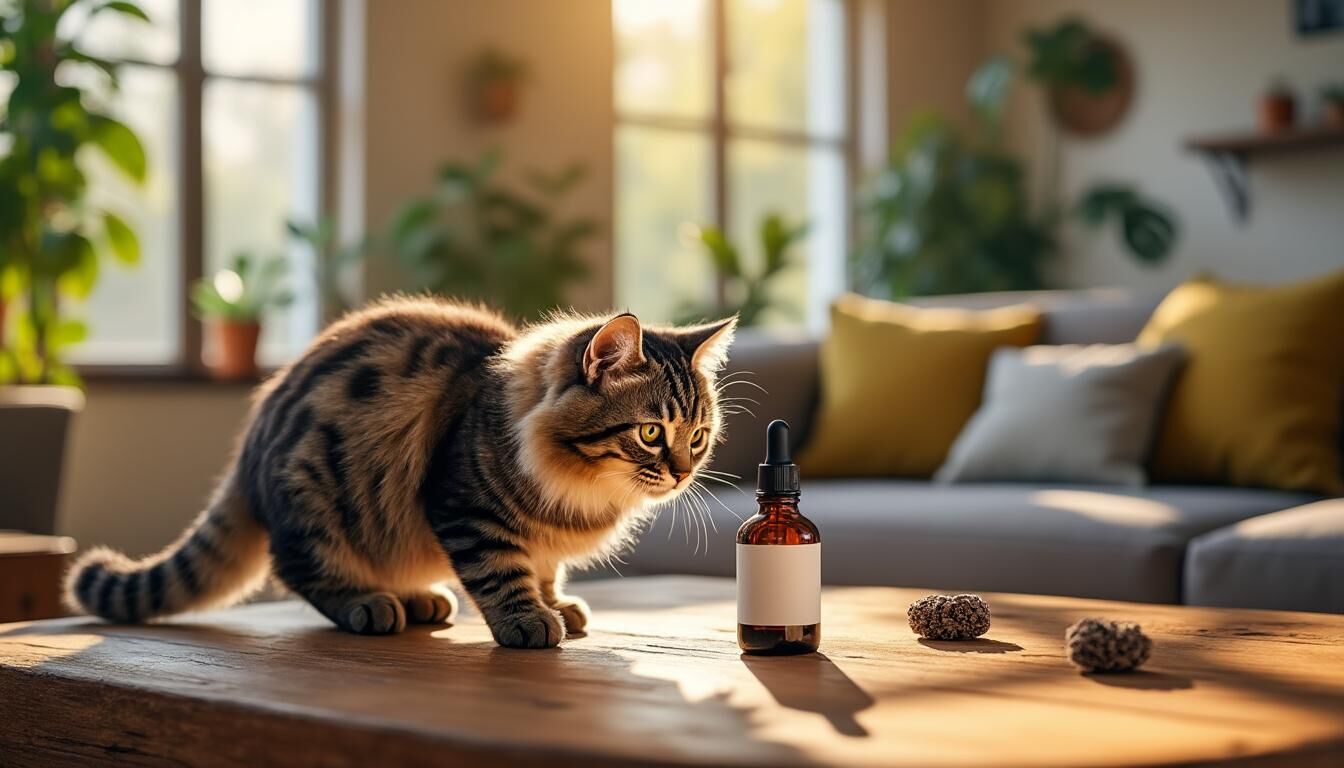Black seed oil, extracted from the seeds of Nigella sativa, has long been cherished in traditional medicine originating in the Middle East and South Asia. Known for its rich composition of bioactive compounds, this natural supplement has sparked growing interest among cat owners seeking alternative ways to support their pets’ health. As holistic care gains traction, black seed oil is increasingly explored for its purported anti-inflammatory, immune-boosting, and digestive health properties in cats. However, the feline metabolism’s unique sensitivities raise essential questions about the safety and appropriate use of this product. Evidence points to both promising benefits and potential risks, highlighting the importance of veterinary guidance. This article delves deeply into the complexities surrounding black seed oil, helping pet caregivers understand what is known, unknown, and safest when considering this supplement for their feline companions.
Is Black Seed Oil Safe for Cats? Understanding the Basics
What Is Black Seed Oil? Origins and Traditional Uses
Black seed oil is derived from the tiny seeds of Nigella sativa, a flowering plant native to regions including the Middle East and South Asia. Steeped in centuries of traditional medicinal practice, it has been used in human healthcare for ailments ranging from respiratory conditions to skin problems. The oil’s main attraction lies in its diverse chemical profile, packed with nutrients and potent phytochemicals.
Traditionally, black seed oil is celebrated for:
-
Anti-inflammatory effects 🩹
-
Antimicrobial and antioxidant properties 🛡️
-
Support in digestive and respiratory wellness 🍃
-
General immune system enhancement ⚔️
Its extraction methods vary, but cold-pressing is favored to retain maximum efficacy and nutritional integrity. In recent years, pet owners have begun experimenting with black seed oil as a natural remedy for cats, drawn by its potential to complement conventional treatments. Despite growing enthusiasm, it is critical to approach such supplements cautiously, given feline-specific metabolic pathways that differ significantly from humans and other animals.
Potential Health Benefits of Black Seed Oil for Cats
Bioactive Compounds: Thymoquinone, Fatty Acids, and Antioxidants
Black seed oil’s therapeutic promise largely stems from its complex mixture of bioactive constituents. The principal compound, thymoquinone, exhibits potent antioxidant and anti-inflammatory activity which may support the immune system in cats. Essential fatty acids present in the oil help promote skin barrier integrity and enhance coat quality, while antioxidants combat cellular damage caused by free radicals.
The following components are of particular interest:
-
Thymoquinone – modulates inflammation and oxidative stress
-
Omega-6 and omega-9 fatty acids – improve skin and coat health
-
Phenolic compounds – contribute to antimicrobial action
While much research has focused on human applications, limited preliminary studies suggest similar effects in cats, especially regarding skin conditions and respiratory inflammation. These findings, although anecdotal in many cases, imply potential auxiliary benefits for feline subjects struggling with mild allergies or digestive disturbances.

Anecdotal Evidence and Preliminary Research on Feline Health
A number of cat owners and holistic veterinarians have reported improvements in feline well-being after supplementing diets with black seed oil. Improvements often cited include:
-
Enhanced coat shine and reduced fur shedding 🌟
-
Reduction in mild inflammatory skin irritations 🔥
-
Support for respiratory health and easier breathing
-
Improved appetite and digestive health
However, rigorous clinical trials specifically targeting cats remain scarce. Most existing evidence results from anecdotal accounts and veterinary observations rather than controlled studies, meaning conclusions must be drawn carefully. Responsible data interpretation is essential to avoid assuming black seed oil as a cure-all.
Black Seed Oil Risks and Safety Concerns for Felines
Possible Side Effects: Gastrointestinal, Allergic, and Neurological Responses
The metabolism of cats is quite sensitive, and what may be tolerated by humans or other animals sometimes triggers adverse reactions in felines. Potential side effects related to black seed oil consumption include:
-
Gastrointestinal upset: vomiting, diarrhea, or loss of appetite 🤢
-
Allergic skin reactions such as rash or itching 🐾
-
Lethargy or behavioral changes indicating neurological distress
-
Rare but serious effects on liver function when overdosed
These symptoms necessitate prompt veterinary evaluation to rule out complications. Sensitive cats or those with pre-existing medical conditions may be particularly vulnerable.
Medication Interactions and When to Avoid Black Seed Oil in Cats
Another vital safety concern is the interaction between black seed oil and administered medications. Due to its impact on liver enzymes and blood clotting mechanisms, black seed oil can interfere with:
-
Anticoagulants (blood thinners) 🩸
-
Anticonvulsants for seizure control
-
Diabetes medications (affecting blood sugar regulation)
-
Nonsteroidal anti-inflammatory drugs (NSAIDs)
Such interactions may exacerbate risks of bleeding, alter drug effectiveness, or cause toxicity. Moreover, black seed oil should never replace prescribed veterinary treatments or management protocols for chronic diseases.
How to Use Black Seed Oil for Cats Safely: Dosage and Veterinary Advice
Veterinary Consultation Before Supplementing with Black Seed Oil
Prior to introducing black seed oil as a supplement, consultation with a qualified veterinarian is paramount. Veterinarians can provide tailored advice, considering the cat’s health status, any medications in use, and potential allergy risks. They may also suggest baseline testing to monitor liver and kidney function during supplementation.
Veterinary guidance ensures that owners avoid unnecessary risks and optimize any potential health benefits.
Safe Dosage, Product Quality, and Administration Guidelines
Determining a safe dosage for black seed oil in cats remains challenging due to limited research. General recommendations emphasize starting with very small doses—often a few drops per day—administered orally or mixed with food. Close observation is mandatory to detect any adverse responses early.
Key pointers for safe administration include:
-
Use products specifically formulated for cats when available 🌿
-
Prefer cold-pressed, organic oil without additives or preservatives
-
Store in a cool, dark place to protect potency 🧊
-
Begin with minimal dosing and increase cautiously only under veterinary supervision
-
Avoid topical application unless advised, as cats may ingest large amounts when grooming
|
Dosage Guidelines for Black Seed Oil in Cats 🐱 |
Comments |
|---|---|
|
Less than 1 drop per 5 lbs bodyweight daily |
Starting dose, adjust only if tolerated well |
|
Administration via food or oral dropper |
Mixing into meals preferred for easier intake |
|
Monitoring for adverse reactions |
Observe for 48-72 hours after introduction |
Natural Remedies for Cats: Trends and Black Seed Oil Market Insights
Rising Popularity of Holistic Cat Care and Social Media Trends
The trend toward natural remedies in feline health is gaining momentum in 2025. Many cat owners research and share experiences about black seed oil and other botanical supplements via online forums and social media platforms. This peer interaction drives interest but also heightens the need for scientifically grounded guidance to avoid misuse.
The market has responded by developing black seed oil supplements tailored specifically for cats, offering clearer labeling, measured dosing tools, and purity assurances. Research institutions and pet care companies are increasingly investing in studies to better characterize the efficacy and safety profiles of black seed oil products.
|
Market Trends 📈 |
Implications for Cat Owners |
|---|---|
|
Increase in holistic pet supplements |
Greater availability but variable quality |
|
Social media sharing of personal stories |
Potential misinformation and enthusiasm without evidence |
|
Emerging veterinary research |
Improved guidance expected in coming years |
Practical Tips for Cat Owners Considering Black Seed Oil
Monitoring Your Cat for Benefits and Warning Signs
When supplementing a cat’s diet with black seed oil, vigilant monitoring is essential. Owners should track changes in:
-
Coat condition (shine, softness) 🐱
-
Energy levels and behavior 💤
-
Digestive health, including stool consistency and appetite 🍽️
-
Signs of adverse reactions such as vomiting, lethargy, or skin irritation
Early recognition of negative symptoms can prevent serious outcomes. If any worrisome signs appear, veterinarians must be consulted immediately.
Alternatives to Black Seed Oil with Proven Safety Profiles
For owners seeking natural approaches with more established safety records, several supplements may offer similar benefits without substantial risks, such as:
-
Fish oil rich in omega-3 fatty acids 🐟
-
Probiotics for digestive support
-
Certain herbal blends specifically vetted for cats
These alternatives have been better documented through veterinary studies and may be preferable starting points for enhancing feline wellness under professional supervision.
Summary Table: Black Seed Oil in Cats – Benefits vs. Risks
|
Aspect ⚖️ |
Potential Benefits 🌟 |
Risks & Considerations ⚠️ |
|---|---|---|
|
Immune System Support |
May modulate and strengthen natural defenses |
Risk of overstimulation leading to allergic reactions |
|
Anti-inflammatory Effects |
Can reduce mild inflammation in skin and joints |
Potential interactions with NSAIDs and other meds |
|
Digestive Health |
Aids in soothing gastrointestinal discomfort |
Possible vomiting or diarrhea if overdosed |
|
Coat and Skin Health |
Essential fatty acids promote a shiny, healthy coat |
Rare risk of skin irritation or allergy on topical contact |
|
Overall Safety |
Generally safe when used at proper dosage and vet-supervised |
Serious adverse effects if misused or combined with meds unsafely |
Frequently Asked Questions
Is black seed oil safe for all cats?
No, safety depends on the individual cat’s health, existing conditions, and medications. Always consult a veterinarian before use.
What signs indicate my cat might be having an adverse reaction?
Watch for vomiting, diarrhea, lethargy, skin redness, or unusual behaviors. Immediate veterinary advice is essential if these occur.
Can black seed oil replace my cat’s prescribed medication?
No, it should never substitute conventional veterinary treatment but might complement it under professional supervision.
How should black seed oil be administered to cats?
Typically in very small oral doses, mixed with food or given by dropper, with careful dose adjustment and monitoring.
Are there safer natural alternatives to black seed oil?
Yes, fish oil and probiotics have more extensive research supporting their safety and efficacy in felines.

